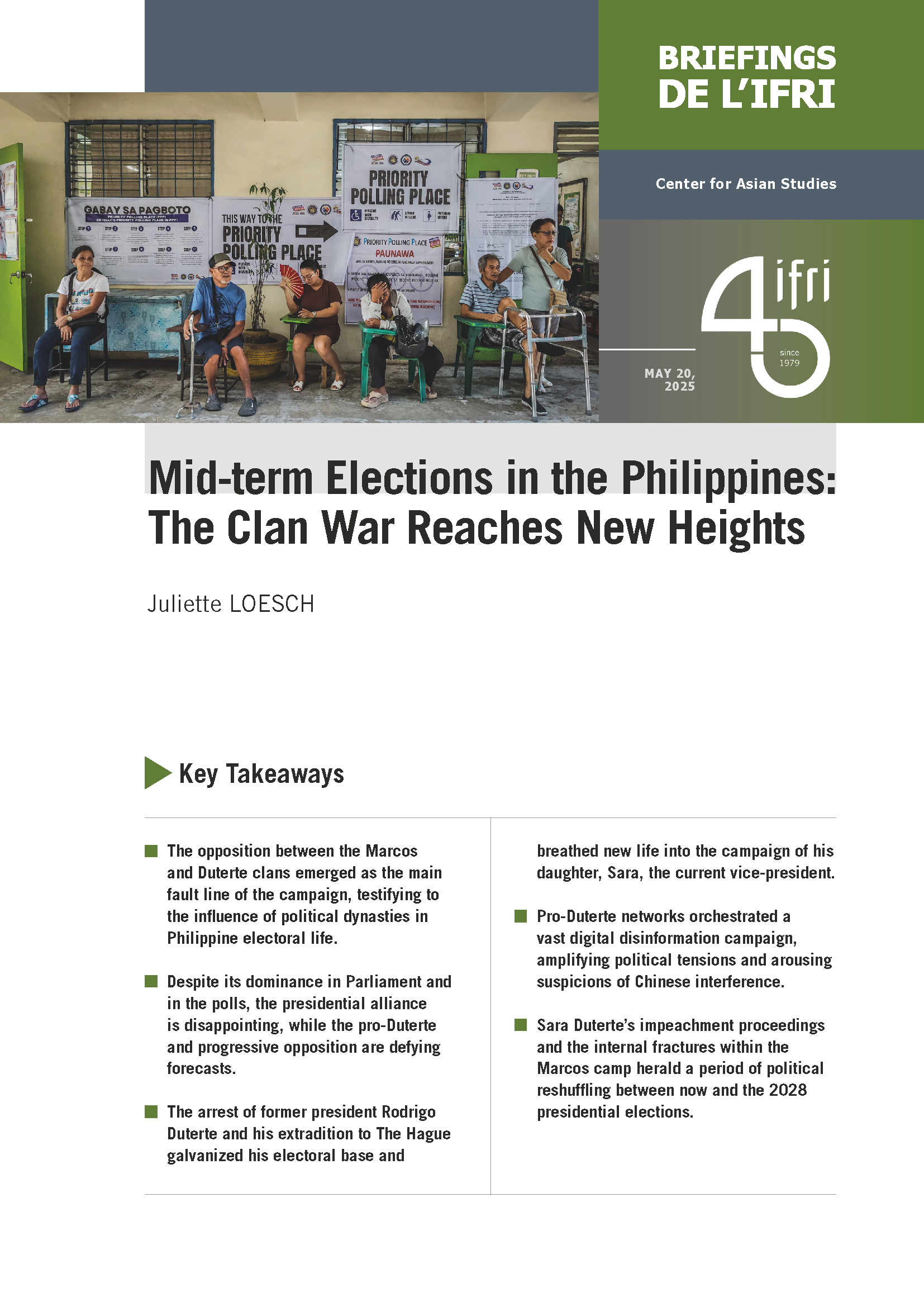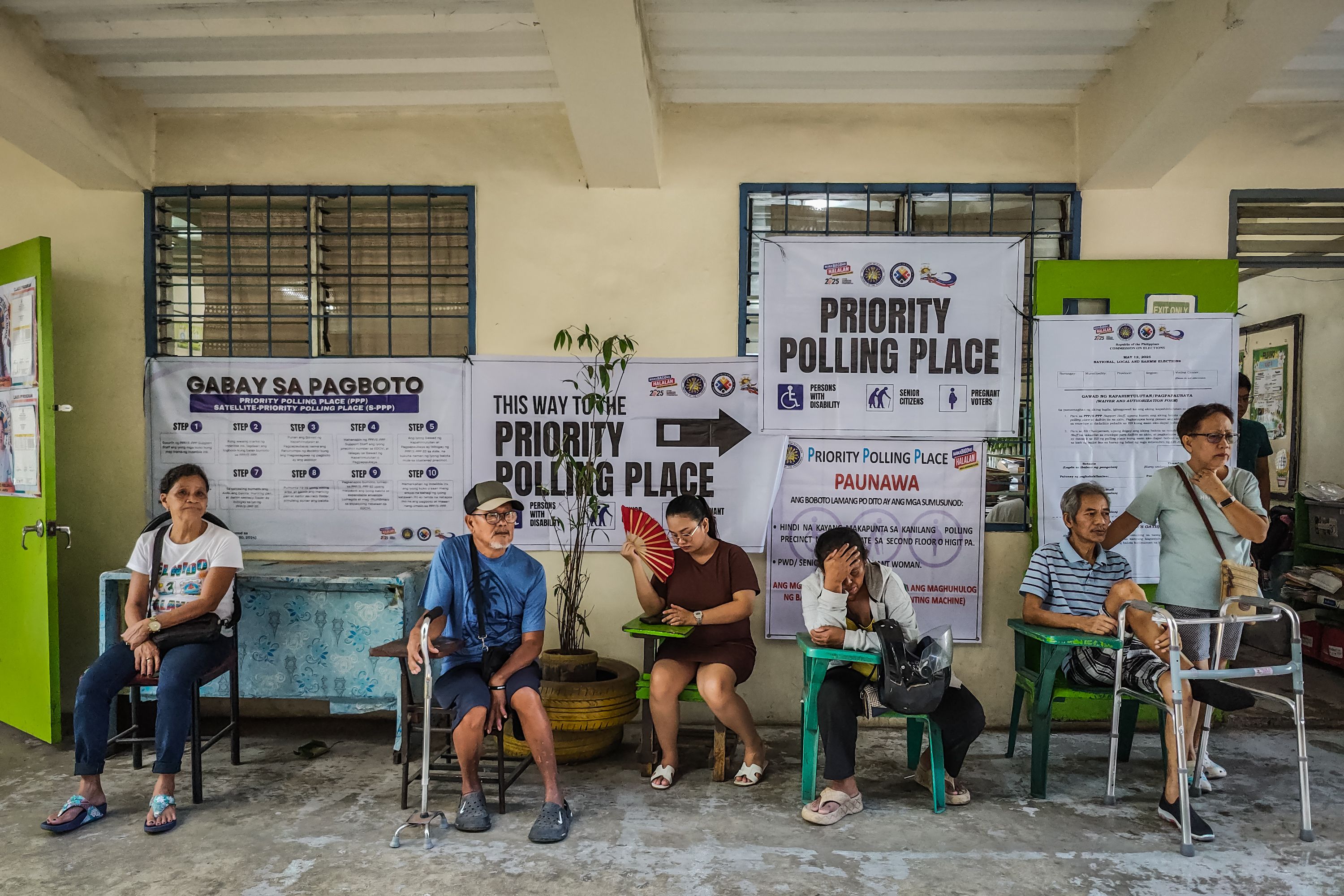Mid-term Elections in the Philippines: The Clan War Reaches New Heights

Three years after the last general and presidential elections, Filipino voters once again went to the polls on May 12, 2025, to elect their municipal and parliamentary representatives.

While more than 18,000 positions were at stake at all levels of government, it was the senatorial election – 12 out of 24 positions were up for grabs – that attracted most of the political and media attention. The upper house plays a strategic role in determining the partisan balance in the run-up to the 2028 presidential elections.
The Philippine political system is dominated by dynastic and oligarchic logics, in which power relations between families prevail over ideological cleavages and substantive debates. The two “ruling” families, represented by President Ferdinand Marcos Jr. (son of the former dictator of the same name) and Vice President Sara Duterte (daughter of the previous President Rodrigo Duterte), have been in open conflict since the implosion of the opportunistic alliance they formed for the 2022 presidential elections. In this context, the mid-term elections have become a referendum in disguise for the domination of one camp or the other.
From the very first days of the campaign, Ferdinand Marcos Jr., who enjoys a solid partisan base in Congress but limited popular support, dramatized the electoral stakes by presenting it as a choice between the “dark days” of Rodrigo Duterte’s regime (2016-2022) and the promise of a “new Philippines”, and called on voters to reject his predecessor’s authoritarian and divisive style of government. The latter quickly counter-attacked, denouncing the government’s inability to contain inflation, while accusing the president of being a heroin addict.
The campaign quickly moved into a critical phase following Sara Duterte’s impeachment vote on February 7 in the House of Representatives, which will have to be confirmed by the Senate, followed by Rodrigo Duterte’s arrest on March 11 and extradition to The Hague, where he now awaits trial on charges of crimes against humanity, committed as part of his war on drugs.
The presidential administration has presented a list of 12 senatorial candidates, united under the banner of the Alyansa Para sa Bagong Pilipinas (Alliance for a New Philippines). Formed in May 2024 with a view to the 2025 elections, this alliance brings together Marcos’ Partido Federal ng Pilipinas and Romualdez’s Lakas-Christian Muslim Democrats (Lakas-CMD), as well as three other parties also controlled by powerful political dynasties. Alyansa thus brings together the country’s dominant forces, and at the start of the campaign, it established itself as a hegemonic player on the Philippine political landscape.
In opposition, the Duterte clan has put forward a senatorial list of ten candidates, the “Duter10”, including two pillars of the former regime: Bong Go, Rodrigo Duterte’s close advisor and right-hand man, and Ronald “Bato” dela Rosa, a central figure in the repressive apparatus during the war on drugs.

Available in:
Themes and regions
ISBN / ISSN
Share
Download the full analysis
This page contains only a summary of our work. If you would like to have access to all the information from our research on the subject, you can download the full version in PDF format.
Mid-term Elections in the Philippines: The Clan War Reaches New Heights
Related centers and programs
Discover our other research centers and programsFind out more
Discover all our analysesThe U.S. Policy Toward Taiwan Beyond Donald Trump: Mapping the American Stakeholders of U.S.-Taiwan Relations
Donald Trump’s return to the White House reintroduced acute uncertainty into the security commitment of the United States (U.S.) to Taiwan. Unlike President Joe Biden, who repeatedly stated the determination to defend Taiwan, President Trump refrains from commenting on the hypothetical U.S. response in the context of a cross-Strait crisis.

China’s Strategy Toward Pacific Island countries: Countering Taiwan and Western Influence
Over the past decade, China has deployed a diplomatic strategy toward the Pacific Island Countries (PICs). This strategy pursues two main objectives: countering Taiwan's diplomatic influence in the region and countering the influence of liberal democracies in what Beijing refers to as the "Global South."

Opening up the G7 to South Korea to Address Contemporary Global Challenges
The G7’s global influence has diminished as powers like China reshape international governance through initiatives such as BRICS and the Shanghai Cooperation Organisation (SCO). With the G7 now representing just 10 per cent of the world’s population and 28 per cent of global GDP, its relevance is increasingly questioned.
Expanding SPDMM as a pivotal institution in the Pacific – A French perspective
The South Pacific Defence Ministers’ Meeting (SPDMM) is the only forum that brings together defense ministers from the wider South Pacific — including Chile, which is hosting it for the first time. This heterogeneous group of countries with varying resources, capacities, and interests — Australia, Chile, Fiji, France, New Zealand, Papua New Guinea (PNG), and Tonga — are united by their shared determination to strengthen cooperation on maritime security and humanitarian assistance and disaster relief (HADR) activities.









